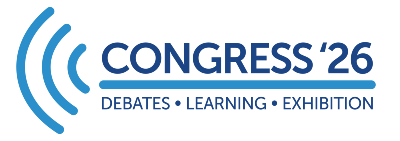Search
You are currently searching within the context of the global site
Search in local site-
Royal College of Nursing responds to report on barriers to healthcare degree apprenticeships
RCN Executive Director for England, Patricia Marquis, said: "Health leaders have identified apprenticeships as a means of boosting recruitment into nursing, including for those who cannot afford to take on debt and go to university. However, the findings of this report show the route is failing to help close the gap left by a broken tuition fee model, with trusts lacking the funding to keep up with costs, while limited clinical placements leave NHS England unable to meet its own targets."
-
Relentless winter pressures expose workforce shortages and lack of beds, says Royal College of Nursing
RCN Executive Director for England Patricia Marquis said: “This record-breaking winter has pushed nursing staff to the edge. Surging viruses have exposed workforce shortages and a lack of beds, whilst an underfunded social care sector is prevented from working with hospitals to discharge patients well enough to leave."
-
Ministers cannot dismiss this as a blip or think they can turn this around without investing in the nursing workforce, Royal College of Nursing responds to the British Social Attitudes Survey on public satisfaction with the NHS
RCN General Secretary and Chief Executive Professor Nicola Ranger said: "Public satisfaction with the NHS has sunk to a new low and this will come as little surprise to nursing staff who always want to be able to give outstanding care to those they look after."
-
Government has failed nursing as ministers ditch pay and career reform, says Royal College of Nursing
RCN General Secretary and Chief Executive, Professor Nicola Ranger, said: "The government had a chance to set nursing on a new path, where it's valued, understood and rewarded fairly. It is now clear that ministers and the government are not in fact “on the side of nurses."
-
Delayed NHS pay award risks making overseas nursing staff ineligible for visa renewal, as RCN warns Home Secretary that new immigration rules threaten nursing workforce
RCN General Secretary and Chief Executive Professor Nicola Ranger said: “There is a risk that if governments do not take action to ensure that 2025/26 pay scales provide Band 3 staff with a salary above the new threshold, these roles will no longer be eligible for sponsorship.”
-
The UK government must negotiate directly in wake of Scottish government's pay offer, urges RCN
RCN Executive Director of Legal and Member Relations, Jo Galbraith-Marten, said: "Scotland members will decide if their offer is acceptable but these figures reveal a gap in where the Westminster government is at for England and what direct negotiations with unions can secure elsewhere."
-
Health secretary told to ‘get a grip’ as NHS pay award delayed
RCN Executive Director of Legal and Member Relations, Jo Galbraith-Marten, said: “Nursing staff deliver the vast majority of care in our NHS and are crucial to keeping patients safe, but yet again we won’t see a pay rise arrive on time. The government is failing to deliver the change it promised."
-
'Nursing staff know even more challenging conditions are on the horizon’, Royal College of Nursing responds to the latest NHS England winter performance data
RCN Executive Director for England Patricia Marquis said: “Sadly, health and social care services begin the new year as the last one ended, under pressure and under-staffed. The latest figures show soaring numbers of patients with flu being treated in over-stretched hospitals, demonstrating just how fragile the whole system is including community and primary care."
-
‘Nursing staff have never been more worried for patient safety’, says Royal College of Nursing
RCN General Secretary and Chief Executive Professor Nicola Ranger said:“ The tragedy is this situation is not new, with these unacceptable conditions now seen all year round. Nursing staff have repeatedly called for investment in social care and community services to ease the pressure on hospitals, but successive governments ignored them."
-
Royal College of Nursing responds to the Prime Minister’s plan to end waiting list backlogs
RCN General Secretary and Chief Executive Professor Nicola Ranger, said: “Patients are waiting too long for treatment and modernisation in the NHS is needed. But the missing link in all of this is the nursing workforce. Nursing is crucial to a better future for health and social care, but there are tens of thousands of vacancies across every part of the system and every region in England."






